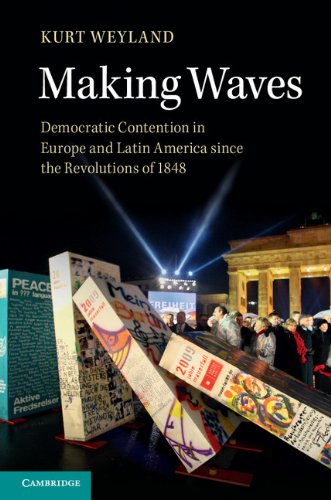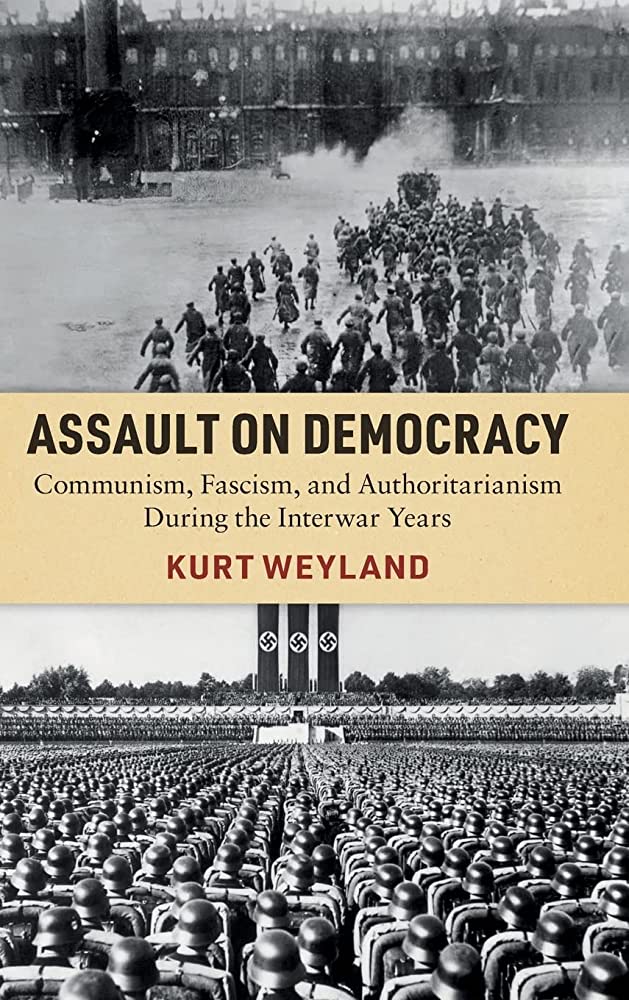By Meredith Perkins



On Monday, April 10, Kurt Weyland, Mike Hogg Professor in the Liberal Arts at the University of Texas, delivered a lecture in the spring 2023 colloquium series sponsored by the Havighurst Center for Russian and Post-Soviet Studies. In his lecture, entitled Populism’s Threat to Democracy: Eastern Europe in Comparative Perspective,” Weyland explored the question of how populists are able to corrupt democracy and what conditions may hamper populists from success.
Weyland raised the valuable point that populism’s fate cannot be considered solely through the lens of populists that successfully corrupted democracy. Instead, it is necessary to look into a larger pool of cases of populists and recognize only 7 of the 30-35 recent populists successfully corrupted democracy. The question of why populists succeed is one Jan-Werner Müller explores in his important book, What is Populism, which focuses on success through the lens of why populists appeal to masses of people. Rather than focusing on what draws people to populists, Weyland considered populists’ success as one resting on their ability to destroy democracy and capitalize on external factors that enable larger power grabs. Through studying what conditions help populists corrupt democracy, we can better identify methods to curb democratic backsliding.
According to Weyland, there are two frameworks that allow populists to destroy democracy. First, populists must exercise domineering leadership within a weak institutional framework. Weak institutional frameworks do not necessarily mean paralegal ones; in paralegal societies where the legality of a populist’s action can be debatable, friction builds up and dissenting voices can emerge. Weyland pointed out how presidential systems have more resistance to populist takeover than European parliamentary systems, as parliamentarian systems’ convergence of the legislative and executive powers makes it more accessible for a populist executive to seize power.
The second framework that Weyland identified was that a populist needs overwhelming mass support, usually in the form of responding to a challenge and being approved of as a ‘hero’ figure by a supermajority of the people. Drawing upon evidence from Latin American populist cases, Weyland argued populists who successfully corrupt democracy often have two crises occur during their regime — economic and security—that populists capitalize on to create that “hero”-level praise. Ultimately, to prevent populists from corrupting democracy, it is necessary to have strong institutional frameworks of checks and balances.
In developing his argument, Weyland drew upon a case study of over 30 populist societies, focused in Latin America and Eastern Europe. His use of evidence proved incredibly compelling: unlike some scholars who only focus on the more widely-known cases of Victor Orbàn or Hugo Chávez, Weyland discussed a wide range of both successful and unsuccessful populist cases. Furthermore, Weyland cited specific examples that certain populists took or particular crises they attacked.
Weyland’s interpretations were deeply rooted in evidence from not just a handful of populist cases, but dozens. His argument was original because, rather than solely characterizing populism as a complex, seemingly-unstoppable force, Weyland also focused on cases that failed. As is often the case with stimulating lectures, they produce questions. For example, do presidential systems necessarily always hinder populism better than parliamentary systems or does this depend on the strength of the institutional frameworks of each? Further research comparing how presidential populists succeed versus parliamentarian populists would be intriguing.
Meredith Perkins is a sophomore majoring in Creative Writing and Diplomacy and Global Affairs
